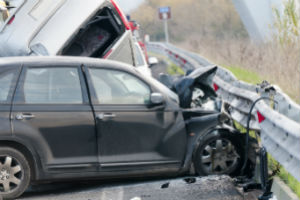 Arizona has been rated as one of the worst states in the U.S. for driver and passenger protection due to the lack of traffic safety laws.
Arizona has been rated as one of the worst states in the U.S. for driver and passenger protection due to the lack of traffic safety laws.
The Advocates for Highway and Auto Safety (AHAS), a consumer-based group, released its annual Roadmap Report of State Highway Safety Laws, which indicates that the majority of states in the U.S. are in need of significant improvement to traffic laws protecting drivers and passengers.
The AHAS’s rankings were based on each state’s compliance with 15 traffic safety laws the group says are necessary for preventing fatal auto accidents. These laws include penalties and prevention of impaired driving, seat belt enforcement, distracted driving, speeding, passenger safety and child protection.
States were grouped together by a color-rating system based on the number of these laws that were enacted during 2016:
Arizona ranks third among the 17 states that received a “red” rating by the AHAS. The state ranked low in the nation due to its lack of laws that prevent texting and driving, front and rear seat belt enforcement, and an all rider motorcycle helmet law.
The 2017 Roadmap Report revealed that 376 laws need to become common practice across the U.S. for traffic safety to increase:
The National Highway Traffic Safety Administration estimates that there were 27,875 auto-related fatalities during the first nine months of 2016. Arizona safety officials have reported that nearly 900 deaths were associated with auto accidents in the state during 2015.
The AHAS cites that the high number of traffic fatalities reported in 2015 and the approximate total for the first three quarters of 2016 are due to states that failed to incorporate basic traffic safety laws.
While the AHAS report details Arizona’s need to reform several of its traffic laws, state officials disagree.
Arizona’s director of the Governor’s Office of Highway Safety, Alberto Gutier, noted that the state has some of the strictest laws in the nation regarding impaired driving and believes recent crackdowns on aggressive driving and speeding have significantly improved highway safety.
However, Arizona has finished in the lowest rankings of the Roadmap of State Highway Safety Laws for the past five years.
Incorporating adequate traffic safety laws is an important step to ensuring the safety of drivers on state roads and highways. Drivers who cause accidents due to neglectful or aggressive behavior can be held liable for the damage they cause. Contact the Phoenix car accident attorneys at the Phillips Law Group for a free, no obligation consultation to determine if you are entitled to compensation for pain and suffering, medical expenses, and other damages. We will not charge you any fees unless we successfully recover damages for your claim.
Call 602-222-222 if you or a loved one has been injured in an auto accident.